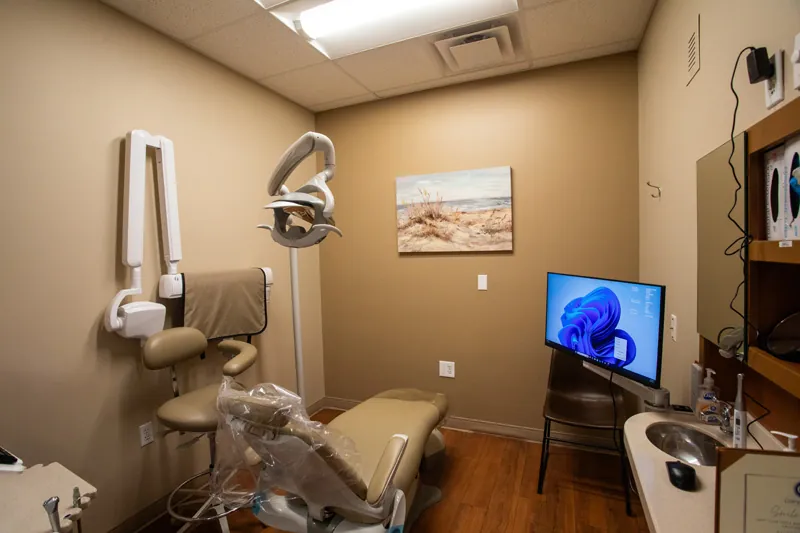With Comprehensive Dentistry in Ypsilanti, MI, you can design your dream smile alongside our skilled cosmetic dental team. Our dentists understand a beautiful smile promotes confidence and leaves a lasting impression. Our specialized cosmetic dentistry services in Ypsilanti are designed to enhance your natural beauty and help you achieve the smile of your dreams.
Cosmetic dentistry is all about creating a balanced, beautiful smile. Our team combines artistic principles with advanced dental techniques to deliver exceptional results. At Comprehensive Dentistry, our commitment to staying at the forefront of dental innovation ensures that you receive the most effective and comfortable treatments available. Our top cosmetic dentistry services in Ypsilanti include:
Dental Bonding

Porcelain Veneers
Porcelain veneers are thin, custom-crafted shells that bond to the front surface of your teeth, transforming their appearance. Dental veneers can correct a wide range of cosmetic issues, including discoloration, misalignment, and uneven tooth shape. Our skilled team can create veneers that are virtually indistinguishable from natural teeth, providing a stunning and long-lasting smile transformation. We pay close attention to the details of color matching, and shaping, to create the most natural looking veneers possible.
Professional Teeth Whitening with Zoom!
At Comprehensive Dentistry, we offer both in-office and take-home teeth whitening options with Zoom!, a top-rated system known to deliver exceptional results. With in-office teeth whitening, you can experience dramatic whitening results in just one visit to our Ypsilanti dental office. Our professional-grade whitening system safely and effectively removes stubborn stains, revealing a brighter, more youthful smile.
If you opt for take-home teeth whitening, you'll be able to maintain your beautiful smile or gradually whiten your teeth at your convenience with our custom-fitted take-home whitening kits. Our team will provide detailed instructions, and support, to ensure optimal results from our take home whitening systems. When it's time to refresh your results, you'll simply return to our Ypsilanti dental office for a refill of whitening gel!
Your Cosmetic Dentistry Consultation
During your initial cosmetic consultation, we will conduct a thorough examination of your teeth and gums, and discuss your smile goals. Our dentists will create a personalized treatment plan that addresses your specific needs and desires. We believe in open communication and will answer all of your questions, ensuring that you feel confident and informed throughout your treatment journey.
Maintaining Your Cosmetic Dentistry Results

Create a More Confident Smile with Cosmetic Dentistry
At Comprehensive Dentistry, we are committed to providing exceptional cosmetic dentistry services in a comfortable and welcoming environment. Our goal is to help you achieve a smile that you are proud to show off. Contact Comprehensive Dentistry in Ypsilanti, MI to schedule your consultation and take the first step toward the smile you desire.
